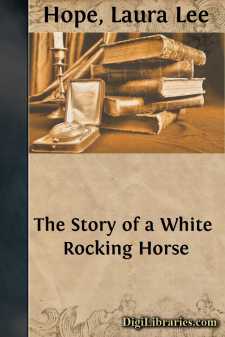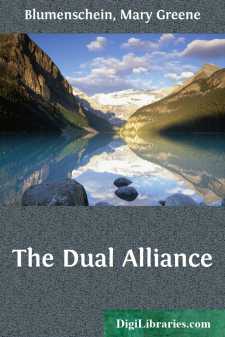Fiction
- Action & Adventure 180
- Biographical 15
- Christian 59
- Classics
- Coming of Age 5
- Contemporary Women 3
- Erotica 8
- Espionage/Intrigue 12
- Fairy Tales, Folklore & Mythology 236
- Family Life 169
- Fantasy 117
- Gay 1
- General 596
- Ghost 32
- Historical 808
- Horror 43
- Humorous 160
- Jewish 25
- Legal 4
- Medical 22
- Mystery & Detective 315
- Political 49
- Psychological 41
- Religious 64
- Romance 159
- Sagas 11
- Science Fiction 730
- Sea Stories 113
- Short Stories (single author) 537
- Sports 10
- Suspense 1
- Technological 8
- Thrillers 2
- Urban Life 31
- Visionary & Metaphysical 1
- War & Military 173
- Westerns 199
Classics Books
Sort by:
Part I. "And some say, she expects to get him married to Rose Ellen before the year's out!" "I want to know if she does!" "Her sister married a minister, and her father was a deacon, so mebbe she thinks she's got a master-key to the Kingdom. But I don't feel so sure of her gettin' this minister for Rose Ellen. Some say he's so wropped up in his garden truck...
more...
by:
Laura Lee Hope
CHAPTER I READY FOR A RACE One by one the lights went out. One by one the shoppers left the toy department of the store. One by one the clerks rode down in the elevators. At last all was still and quiet and dark—that is, all dark except for a small light, so the night-watchman could see his way around. "Now we can have some fun!" cried a voice, and it seemed to come from a Calico Clown, lying...
more...
CHAPTER I. It was extremely tiresome! It was vexatious; it was altogether annoying! Most people under similar circumstances would have used stronger expressions, would have bemoaned themselves loudly, or at least inwardly, with all the pathos of self-pity. To be nearly at the end of one’s journey, almost within sight and sound of home fires and home welcomes, and then to be snowed up, walled,...
more...
by:
E. G. B. Moss
CHAPTER I. SHELLS AND THEIR INMATES. Before the study of shellfish, or molluscs, was conducted on the scientific principles of the present day, shells were classified as univalves, bivalves, and multivalves. The univalves were shells in one piece, such as the whelk; the bivalves those in two pieces, such as the mussel or oyster; and the multivalves those in more than two pieces, such as barnacles or...
more...
THE ROSE IN THE MIRE The first time I was blessed with a sight of the señorita was on the day of my arrival in the Federal City,—in fact, it was upon my arrival. An inquiry in the neighborhood of the President's House for my sole acquaintance in the city, Senator Adair of Kentucky, had resulted in my being directed to Conrad's boarding house on the Capitol Hill. In the Fall of 1805 Indian...
more...
PROLOGUE Barbara Garratry was thirty and Irish. To the casual observer the world was a bright coloured ball for her tossing. When she was a tiny mite her father had dubbed her "Bob, Son of Battle," because of certain obvious, warlike traits of character, and "Bob" Garratry she had been ever since. She had literally fought her way to the top, handicapped by poverty, very little...
more...
THE TWO TWILIGHTS THE THANKLESS MUSE The muses ring my bell and run away.I spy you, rogues, behind the evergreen:You, wild Thalia, romper in the hay;And you, Terpsichore, you long-legged quean.When I was young you used to come and stay,But, now that I grow older, 'tis well seenWhat tricks ye put upon me. Well-a-day!How many a summer evening have ye beenSitting about my door-step, fain to singAnd...
more...
INTRODUCTION In this country inherited fortunes, or ancestral honors, have little effect on a man's reputation; but inherited disposition and early surroundings have much effect on his character. My father's ancestors were from New England. His father, Phineas Butler, came from Saybrook, Connecticut, where the Congregational Churches framed the Saybrook platform. His mother's people, the...
more...
by:
Maria Edgeworth
I am sure that you have heard of us, and of all we have done and seen from Edgeworthstown as far as Berne: from thence we went to Thun: there we took char-à-bancs, little low carriages, like half an Irish jaunting car, with four wheels, and a square tarpaulin awning over our heads. Jolting along on these vehicles, which would go over a house, I am sure, without being overturned or without being...
more...
by:
Joshua A. Nunn
FOOD. (chunnah). In the north of India the chief food on which horses are fed is gram, the seed of one of the pea tribe of plants. It is a crop that ripens in the beginning of the summer, when it is harvested, and the grain thrashed out by driving cattle over it in a circle. The dry stalks, that are broken up into small pieces, are used for feeding cattle on, and are known as “missa bhoosa,” in...
more...











